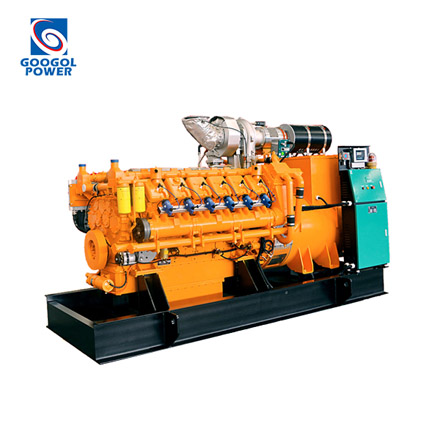- HOME
- ABOUT GOOGOL
- PRODUCTS
DIESEL ENGINE
GENERATOR SETS
- DOWNLOAD
- CASES
- NEWS
- CONTACT US
DIESEL ENGINE
GENERATOR SETS

Knocking in a gas engine refers to an unusually intense combustion process characterized by continuous explosions and vibrations. Here are several primary reasons leading to knocking in gas engines:
High Temperatures and Pressures:Knocking typically occurs in environments of high temperatures and pressures. During the compression stroke, the temperature and pressure within the cylinder sharply rise. If the temperature and pressure rise too rapidly or excessively, it can cause incomplete combustion of fuel or pre-ignition, leading to knocking.
Low Octane Fuel:Octane rating measures a fuel’s resistance to knocking. Lower octane ratings mean the fuel is more prone to knocking. Using fuel or mixtures with low octane values can easily trigger knocking in the engine.
Premature Ignition Timing:Controlling the engine’s ignition timing is crucial to ensure the fuel ignites on the piston just before reaching its maximum pressure. If the ignition timing is too early, the high temperature and pressure generated by combustion may clash with the rising piston, causing knocking. Abnormal Combustion Chamber Deposits:Deposits or carbon buildup in the combustion chamber can cause localized premature ignition of fuel, resulting in knocking. These deposits often arise from fuel
quality, oil additives, or incomplete combustion.
Inappropriate Air-Fuel Ratio:The air-fuel ratio refers to the proportion of fuel to air. If the ratio deviates from the appropriate range, incomplete combustion of the fuel may occur, leading to severe knocking. To prevent knocking in gas engines, various measures are typically taken:
Optimize fuel quality by selecting fuel with appropriate octane ratings.
Control the ignition system to ensure proper ignition timing.
Regularly clean the combustion chamber to prevent carbon buildup.
Ensure an appropriate air-fuel ratio to avoid excessively rich or lean mixtures.
Employ advanced technologies like knock sensors to monitor and adjust engine operating parameters.
